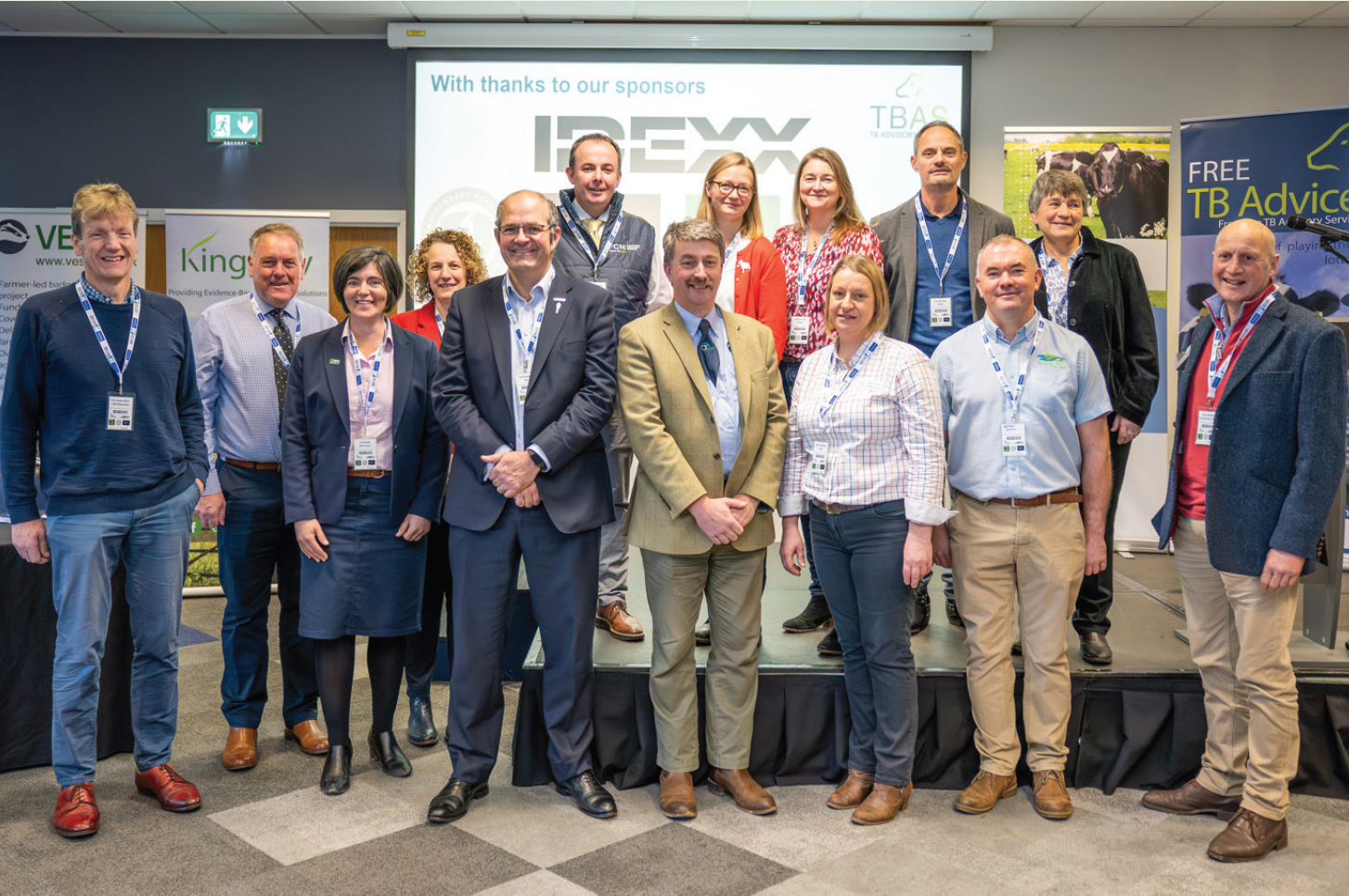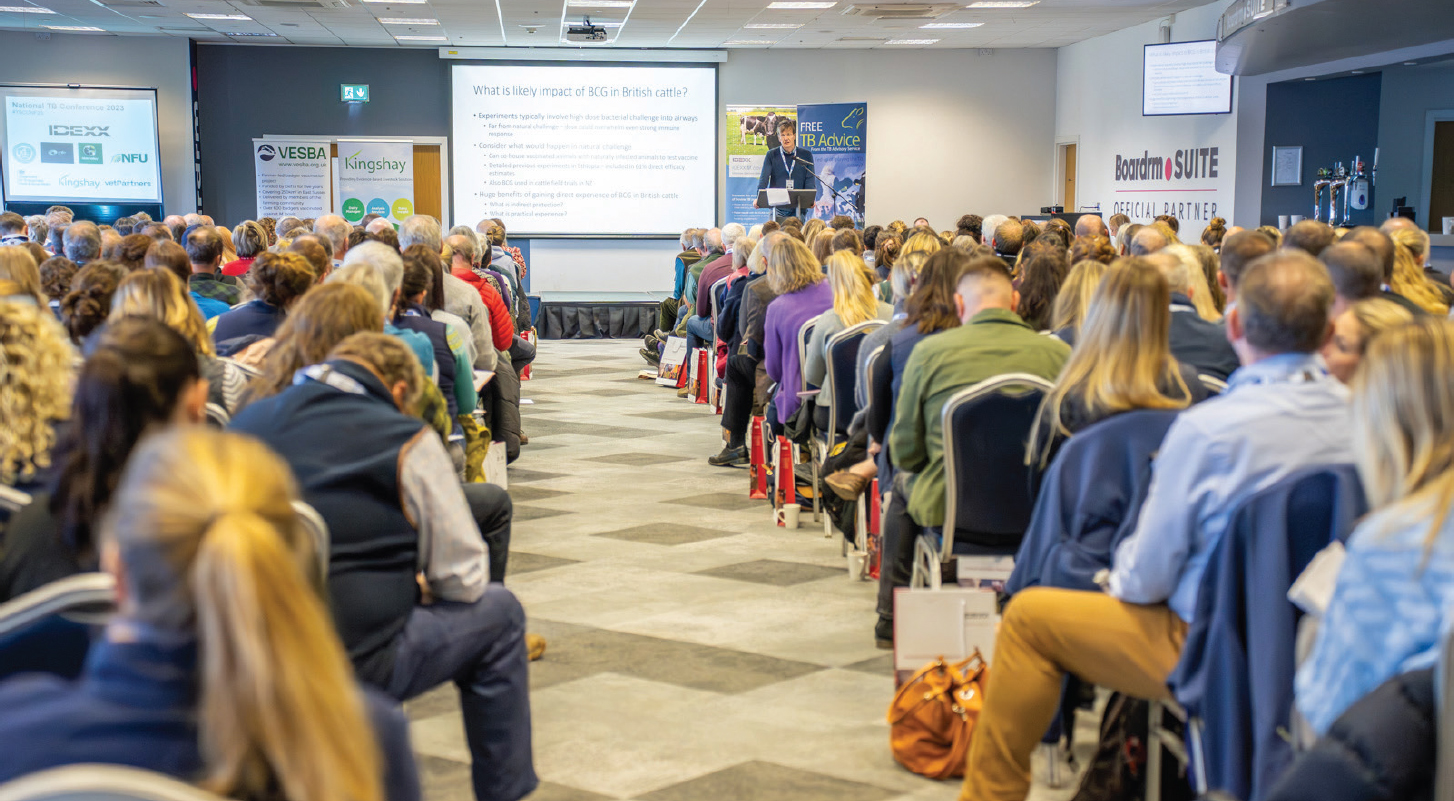Bovine tuberculosis (bTB) is the most devastating disease impacting British cattle herds today. Not because of the direct animal health and welfare impacts – the majority of reactors are otherwise fit and heathy animals – but because of the massive impacts a breakdown has on the farm business and the knock-on effects on animal and farmer health and welfare. bTB also massively impacts the ability of farmers to engage positively in the things that matter to them, such as improving health and welfare, and reaching net zero.
Having been a practicing farm vet for over 20 years in the same area of Derbyshire, I absolutely understand the pain and heartbreak that TB brings and the unimaginable impact TB has on farm businesses and most importantly for me, the farmer, their families and the local community. Equally, I can see the difficult job that the Department for Environment Food and Rural Affairs (Defra) and the Animal and Plant Health Agency (APHA) have in trying to control this infectious disease, as ultimately its control is dictated by legislation and the government.
In my role as Technical Director for the TB Advisory Service and as a member of the bTB Partnership, I was constantly aware that the biggest barrier to TB control was not the lack of science and evidence, but the ‘them and us’ environment and the feeling that everyone was pitching against each other. Government against farmers, farmers against farmers and even within the veterinary profession. I felt like piggy in the middle, defending government policy and APHA to vets and farmers in some meetings and trying to get government to understand the practicalities and devastating impact that TB has on farming in other meetings.
There is a need to challenge these attitudes and encourage everyone involved in bTB control to understand that there are different perspectives and priorities for each stakeholder group, that are all valid and need to be listened to.
National TB conference
On the 29 November at the Sixways Stadium in Worcester, over 260 delegates attended a National TB Conference. The title was ‘A collaborative approach towards a tb free future’. I think the large number that attended is a serious reflection on how much TB is impacting the livestock and dairy industries. Delegates included farmers and local vets from across the UK, APHA field staff, Defra TB policy team and representatives from devolved governments. The conference was organised by Kingshay who are part of the delivery team for the Defra-funded TB Advisory Service (TBAS).
The conference welcomed a variety of speakers from Defra, APHA, the bTB partnership, National Farmers Union, Farming Community Network, British Cattle Veterinary Association and representatives from three local TB projects: Pembrokeshire, Cumbria and Oxfordshire (Figure 1 and 2). The aim was to champion what has been achieved by working together, as part of the bTB eradication strategy and to start the conversation on what is needed from all stakeholders to achieve a bTB-free status in England and Wales.


Financial, emotional and physical effects
The Farming Community Network CEO Jude McCann and Stephen Dennis, Farming Community Network South West Regional Director, reminded the audience of the financial, emotional and physical effects that bTB has on people. They presented results from their recent UK-wide survey, which saw over 450 farmers talk about their experiences with bTB and the impacts it has on their farms. Over 80% of farmers that took part had experienced a bTB breakdown, with 60% having changed their farming business as a result of it. It became apparent that the threat of bTB was significantly impactful on household situations, physical wellbeing and mental health, highlighting the need for collaboration between all stakeholders for a successful bTB free future.
Combatting TB
Ele Brown, Head of Defra Bovine TB Programme, shared encouraging statistics to delegates, highlighting that bTB is at the lowest levels in England for 15 years and that we must all work in partnership to continue seeing this downward trend. Looking to the future, we can expect to see new tools to help combat the disease, including the roll out of a cattle vaccine.
Ruth Little reminded us all why including social science in policy development is important, focusing on the potential barriers to implementing biosecurity measures on farm, including financial measures, practicality, trust and awareness. Ruth ended the session with the message that there are three factors to working collaboratively to achieve a bTB-free future:
- A shared mission
- Finding workable solutions
- Developing policy with farmers and vets rather than for them.
The conference also championed the local approach to bTB control. Speakers from three groups working in England and Wales told the delegates how farmers, private vets and local APHA are working together to manage TB in their own area. Using local knowledge alongside the government's epidemiology data, local stakeholders are being given the ability to decide how to manage bTB. This is driving regional engagement through local leadership.
The role of the TB Advisory Service
All of the speakers championed the role that TBAS has played in TB control over the last 6 years. Over 1500 farmers have taken up the offer of a free (Defra funded) farm visit since October 2021, delivered by over 370 vets from over 140 practices, across 48 different counties within England. The visits offer four bespoke TB biosecurity recommendations agreed on farm to be completed within 3–6 months. Farmers have started, intend to start soon or have completed 83% of the recommendations. TBAS has, thanks to the hard work of our veterinary advisers and engaged farmers, become a trusted brand for honest, evidence-based, practical TB advice. The conference was an opportunity to highlighted the great work TBAS advisers are doing on farm, in meetings and in the public arena to highlight what private vets and farmers are doing to reduce their own risk of a TB breakdown.
Conclusions
The key final take home message summed up by Abi Reader, NFU Cymru Deputy President, was that everyone has to play their part in bTB control. She highlighted that we may all have different priorities and opinions, but that does not make them more or less important overall. Only by listening to each other and working together to reach the shared goal, will a bTB-free future be a possibility.
As everyone left the conference they were asked ‘do you feel positive that becoming officially bTB free by 2038 in England and 2041 in Wales is achievable?’. It was encouraging to see that over 70% of delegates felt that officially TB free status was achievable by these targets.


